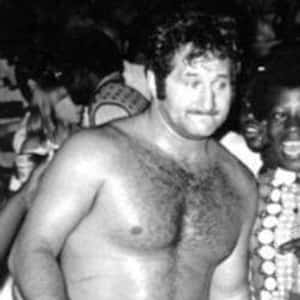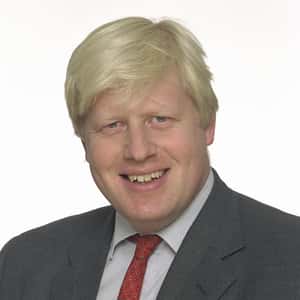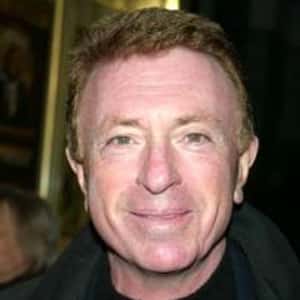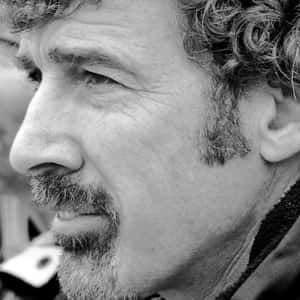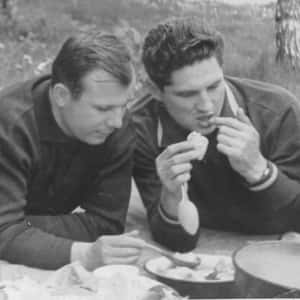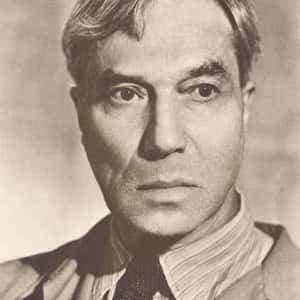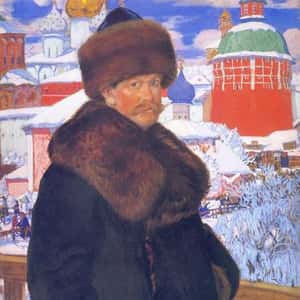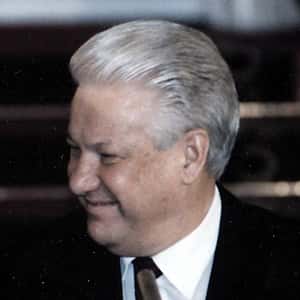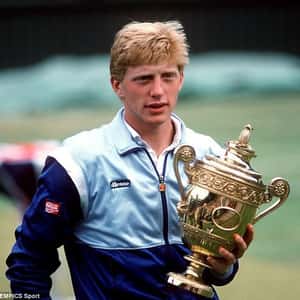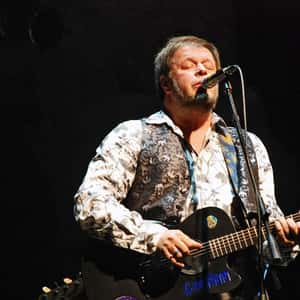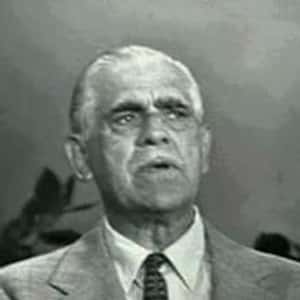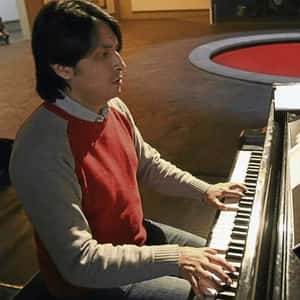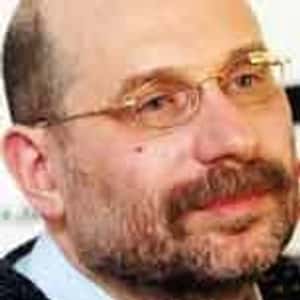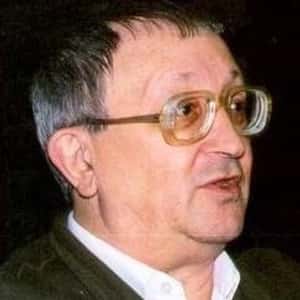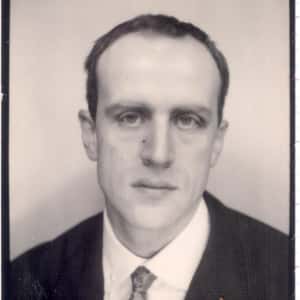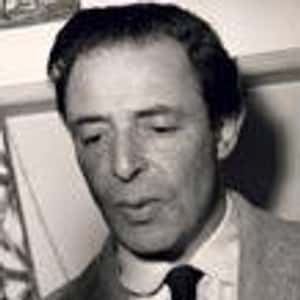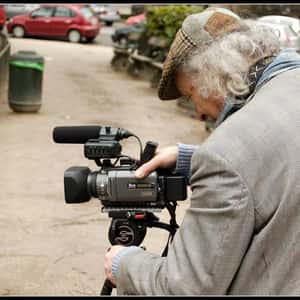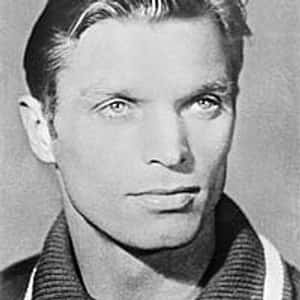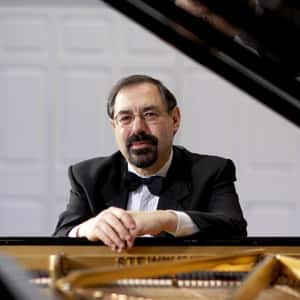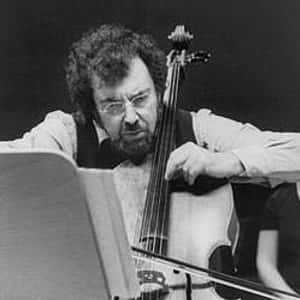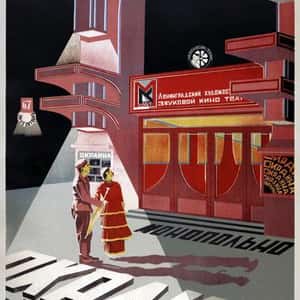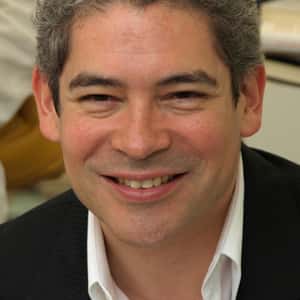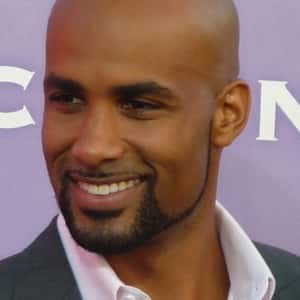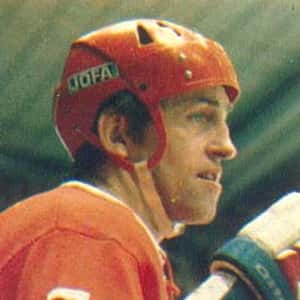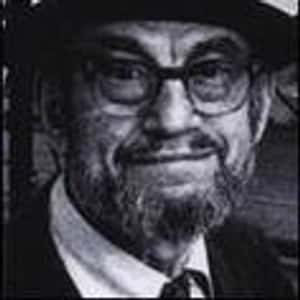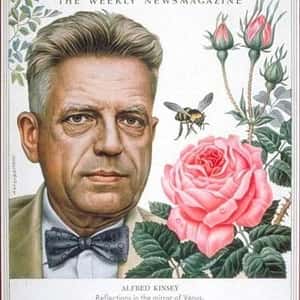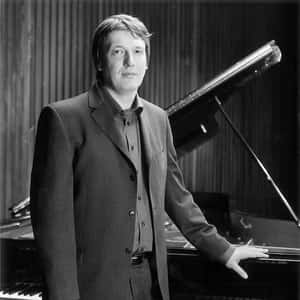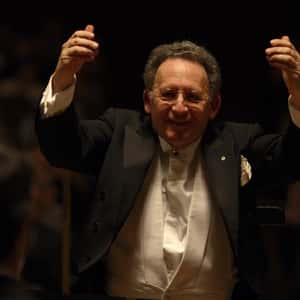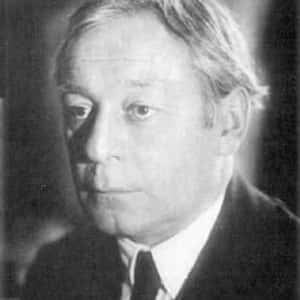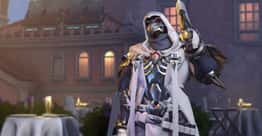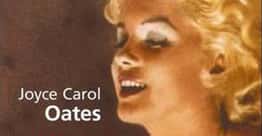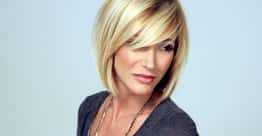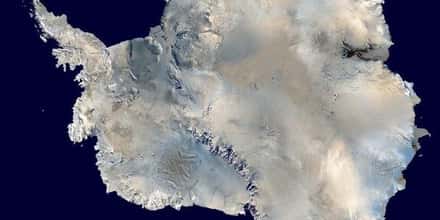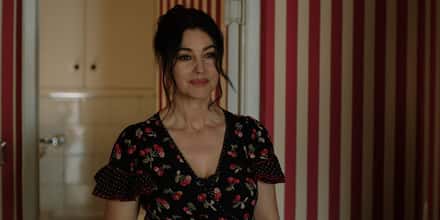Who Is The Most Famous Boris In The World?
How many celebrities named Boris can you think of? The famous Borises below have many different professions, including notable actors named Boris, famous musicians named Boris, and even athletes named Boris.
Boris Karloff is certainly one of the most famous Borises on this list. One of the famous actors named Boris, he is best known for portraying the monster in Frankenstein. The Mummy and How the Grinch Stole Christmas are among his notable projects.
Another of the famous people with the first name Boris is Boris Johnson. He assumed the office of the Prime Minister of the United Kingdom in 2019. He previously served as the Mayor of London from 2008 until 2016.
Did we forget one of your favorite famous people named Boris? Just add them to the list!
- 06/28/1933Lawrence J. Simon (June 28, 1933 – September 1, 1994), better known by the ring name, Boris Malenko (Russian: Бори́с Маленко́, tr. pron, IPA: [bɐˈrʲis mɐlˈɛnko]), was an American professional wrestler and professional wrestling trainer. He is best known for his appearances with Championship Wrestling from Florida and Big Time Wrestling in the 1960s and 1970s as a Russian heel. He is the father of professional wrestlers Joe Malenko and Dean Malenko.
- 06/19/1964Alexander Boris de Pfeffel Johnson (; born 19 June 1964) is a British politician, serving as Prime Minister of the United Kingdom and Leader of the Conservative Party since July 2019. He has been Member of Parliament (MP) for Uxbridge and South Ruislip since 2015 and was previously MP for Henley from 2001 to 2008. He also served as Mayor of London from 2008 to 2016 and Foreign Secretary from 2016 to 2018. Johnson identifies as a one-nation conservative and has been associated with both economically and socially liberal policies. Born in New York City to upper-middle class English parents, Johnson was educated at the European School, Brussels I, Ashdown House, and Eton College. He read Classics at Balliol College, Oxford, where he was elected President of the Oxford Union in 1986. He began his career in journalism at The Times but was dismissed for falsifying a quotation. He later became The Daily Telegraph's Brussels correspondent, with his articles exerting a strong influence on growing Eurosceptic sentiment among the British right wing. He was an assistant editor of the Telegraph from 1994 to 1999, and edited The Spectator from 1999 to 2005. He was elected MP for Henley in 2001, and served in the Shadow Cabinet under Conservative leaders Michael Howard and David Cameron. He largely adhered to the Conservatives' party line but adopted a more socially liberal stance on issues such as LGBT rights in parliamentary votes. Selected as the Conservative candidate for the 2008 London mayoral election, Johnson defeated Labour incumbent Ken Livingstone and resigned from the British House of Commons. During his first term as Mayor of London, he banned alcohol consumption on much of the capital's public transport, and introduced the New Routemaster buses, cycle hire scheme, and Thames cable car. In 2012, he was re-elected, again defeating Livingstone. During his second term, he oversaw the 2012 Olympics. In 2015, he was elected MP for Uxbridge and South Ruislip, stepping down as Mayor the following year. In 2016, Johnson became a prominent figure in the successful Vote Leave campaign for Brexit as part of the United Kingdom's withdrawal from the European Union. He was subsequently appointed Secretary of State for Foreign and Commonwealth Affairs by Theresa May, but resigned in criticism of May's approach to Brexit and the Chequers Agreement two years later. In 2019, he was elected Conservative Leader and appointed Prime Minister. Johnson is a controversial figure within British politics and journalism. Supporters have praised him as an entertaining, humorous, and popular figure, with an appeal stretching beyond traditional conservative voters. He has been criticised by figures on both the left and the right for using racist and homophobic language, as well as alleged elitism, cronyism, dishonesty, and laziness. Johnson is the subject of several biographies and a number of fictionalised portrayals.More Boris Johnson
- #6 of 94 onWho Is The Most Famous Johnson In The World?
- #150 of 239 onEvery Famous Person Who Has Tested Positive For COVID-19
- #20 of 20 on50 Politicians Who Have Admitted to Smoking Pot
- 10/18/1923Boris Sagal (October 18, 1923 – May 22, 1981) was a Ukrainian-American television and film director.
- 09/18/1962Boris Said III (born September 18, 1962) is an American professional race car driver. His father, Bob Said, was a Formula 1 race driver and US Olympic bobsled driver in 1968 and 1972. His NASCAR career began in 1995 as a "road course ringer" primarily due to his extensive road-racing experience. He last competed part-time in the Monster Energy NASCAR Cup Series, driving the No. 33 Chevrolet SS for Circle Sport – The Motorsports Group.
- 12/18/1934Boris Valentinovich Volynov (Russian: Бори́с Валенти́нович Волы́нов; born 18 December 1934) is a Soviet cosmonaut who flew two space missions of the Soyuz programme: Soyuz 5, and Soyuz 21. He was the first Jewish cosmonaut to enter space, preceding Judith Resnik in the United States.
- 6
Boris Pasternak
02/10/1890Boris Leonidovich Pasternak (; Russian: Бори́с Леони́дович Пастерна́к, IPA: [bɐˈrʲis lʲɪɐˈnʲidəvʲɪtɕ pəstɨrˈnak]; 10 February [O.S. 29 January] 1890 – 30 May 1960) was a Russian poet, novelist, and literary translator. In his native Russian, Pasternak's first book of poems, My Sister, Life (composed 1917), is one of the most influential collections ever published in the Russian language. Pasternak's translations of stage plays by Goethe, Schiller, Calderón de la Barca and Shakespeare remain very popular with Russian audiences. As a novelist, Pasternak is also known as the author of Doctor Zhivago (1957), a novel which takes place between the Russian Revolution of 1905 and the Second World War. Doctor Zhivago was rejected for publication in the USSR and the manuscript had to be secretly smuggled to Italy for publication. Pasternak was awarded the Nobel Prize for Literature in 1958, an event which enraged the Communist Party of the Soviet Union, which forced him to decline the prize, though his descendants were later to accept it in his name in 1988. Doctor Zhivago has been part of the main Russian school curriculum since 2003.More Boris Pasternak- #125 of 508 onThe 500+ Best Writers of All Time
- #77 of 296 onThe Best Novelists of All Time
- #62 of 342 onThe Greatest Poets of All Time
- 03/07/1878Boris Mikhaylovich Kustodiev (Russian: Бори́с Миха́йлович Кусто́диев; 7 March [O.S. 23 February] 1878 – 28 May 1927) was a Russian and Soviet painter and stage designer.
- 02/01/1931Boris Nikolayevich Yeltsin (Russian: Бори́с Никола́евич Е́льцин, IPA: [bɐˈrʲis nʲɪkɐˈlaɪvʲɪtɕ ˈjelʲtsɨn] (listen); 1 February 1931 – 23 April 2007) was a Soviet and Russian politician who served as the first President of the Russian Federation from 1991 to 1999. A member of the Communist Party of the Soviet Union from 1961 to 1990, he later stood as a political independent, during which time he was ideologically aligned with liberalism and Russian nationalism. Born in Butka, Sverdlovsk Oblast to a peasant family, Yeltsin grew up in Kazan. After studying at the Ural State Technical University, he worked in construction. Joining the Communist Party, which governed the Soviet Union as a one-party state according to Marxist-Leninist doctrine, he rose through its ranks and in 1976 became First Secretary of the party's Sverdlovsk Oblast committee. Initially a supporter of the perestroika reforms of Soviet leader Mikhail Gorbachev, Yeltsin later criticised them as being too moderate, calling for a transition to a multi-party representative democracy. In 1987 he was the first person to resign from the party's governing Politburo, establishing his popularity as an anti-establishment figure. In 1990, he was elected chair of the Russian Supreme Soviet and in 1991 was elected President of the Russian Soviet Federative Socialist Republic (RSFSR). Allying with various non-Russian nationalist leaders, he was instrumental in the formal dissolution of the Soviet Union in December that year, at which the RSFSR became the Russian Federation, an independent state. Yeltsin remained in office as president and was reelected in the 1996 election, although critics claimed pervasive electoral corruption. Yeltsin transformed Russia's state socialist economy into a capitalist market economy by implementing economic shock therapy, market exchange rate of the ruble, nationwide privatization, and lifting of price controls. Economic collapse and inflation ensued. Amid the economic shift, a small number of oligarchs obtained a majority of the national property and wealth, while international monopolies came to dominate the market. During the 1993 Russian constitutional crisis, Yeltsin ordered the unconstitutional dissolution of the Supreme Soviet parliament, which responded by attempting to remove him from office. In October 1993, troops loyal to Yeltsin stopped an armed uprising outside of the parliament building; he then introduced a new constitution. Secessionist sentiment in the Russian Caucasus led to the First Chechen War, War of Dagestan, and Second Chechen War between 1994 and 1999. Internationally, Yeltsin promoted renewed collaboration with Europe and signed arms control agreements with the United States. Amid growing internal pressure, in 1999 he resigned and was succeeded by his chosen successor, former Prime Minister Vladimir Putin. Out of office, he kept a low profile, although was later given a state funeral. Yeltsin was a controversial figure. Domestically he was highly popular in the late 1980s and early 1990s, although his reputation was damaged by the economic and political crises of his presidency and he left office widely unpopular with the Russian population. He received praise for his role in dismantling the Soviet Union, transforming Russia into a representative democracy, and introducing new political, economic, and cultural freedoms to the country. Conversely, he was accused of economic mismanagement, overseeing a massive growth in inequality and corruption, and of undermining Russia's standing as a major world power.
- 11/22/1967Boris Franz Becker (German pronunciation: [ˈboːʁɪs ˈbɛkɐ]; born 22 November 1967) is a German former world No. 1 professional tennis player. He was successful from the start of his career, winning the first of his six major singles titles at age 17. He also won five year-end championships, 13 Masters Series titles and an Olympic gold medal in doubles. At times Becker struggled with his early success and fame, and his personal life has been turbulent. Since his playing career ended, he has engaged in numerous ventures, including coaching Novak Djokovic for three years, and working in the field of poker.More Boris Becker
- Dig Deeper...195+ Famous Sagittarius Celebrities
- #9 of 210 onThe Greatest Men's Tennis Players of All Time
- #537 of 1,269 onThe Best Athletes Of All Time
- 11/27/1953Boris Borisovich Grebenshchikov (Russian: Бори́с Бори́сович Гребенщико́в; born (1953-11-27)27 November 1953), stage name Boris Grebenshikov, also known as Boris Purushottama Grebenshikov, is one of the most prominent members of the generation which is widely considered the "founding fathers" of Russian rock music. Due as much to his personal contribution as to the undisputed and lasting success of his main effort, the band Aquarium (active since 1972 until today), he is a household name in Russia and much of the former Soviet Union. Grebenshchikov is colloquially known as BG (Russian: БГ) after his initials. He is often called the 'Grandfather of Russian Rock'.
- 11/23/1887Celebrated for his portrayal of monsters and villains, Boris Karloff is indeed an iconic figure in the annals of Hollywood horror films. Born as William Henry Pratt in 1887 in Surrey, England, he adopted the stage name "Boris Karloff" to hide his acting career from his conservative family. His journey in the film industry, which spanned over six decades, was marked by unyielding determination and a relentless pursuit of refining his craft. Karloff's breakthrough role came in 1931 with Universal Pictures' Frankenstein, where his portrayal of the monster, with its poignant blend of menace and vulnerability, became a touchstone of the horror genre. Despite the role demanding extensive makeup and gruelling physical demands, Karloff's performance propelled him to stardom. He solidified his reputation as a horror legend with consequential roles in The Mummy (1932) and The Bride of Frankenstein (1935). However, his talents were not restricted to horror alone; he exhibited his versatility through impressive performances in other genres, such as stage plays like Arsenic and Old Lace and narrating the classic animated television special How the Grinch Stole Christmas! Off-screen, Karloff was known for his kindness and professionalism, traits that earned him respect among his peers. A founding member of the Screen Actors Guild, he was deeply involved in safeguarding actors' rights. Despite facing health issues towards the end of his career, he continued working, leaving behind a legacy marked by exceptional performances and dedication to craft. Karloff passed away in 1969. His body of work continues to inspire generations of actors and filmmakers, a testament to his enduring impact in cinema history.More Boris Karloff
- Dig Deeper...195+ Famous Sagittarius Celebrities
- #142 of 574 onThe Best Actors In Film History
- #85 of 219 onThe Greatest British Actors of All Time
- 03/21/1972Boris Olegovich Mironov (Russian: Борис Олегович Миронов, born 21 March 1972) is a Russian former professional ice hockey defenceman. He is the younger brother of Dmitri Mironov.
- 13
Boris Cepeda
09/26/1974Boris Cepeda (born September 26, 1974 in Quito) is a German-Ecuadorian Pianist and Diplomat. - 05/20/1956Boris Akunin (Russian: Борис Акунин) is the pen name of Grigori Chkhartishvili (Russian: Григорий Шалвович Чхартишвили; Georgian: გრიგორი ჩხარტიშვილი) (born 20 May 1956), a Russian writer of Georgian and Jewish origin. He is best known as writer of detective and historical fiction. He is also an essayist and literary translator. Grigory Chkhartishvili has also written under pen names Anatoly Brusnikin, Anna Borisova, and Akunin-Chkhartishvili.
- 04/15/1933Boris Strugatsky was an author.
- 03/10/1920Boris Vian (French: [bɔʁis vjɑ̃]; 10 March 1920 – 23 June 1959) was a French polymath: writer, poet, musician, singer, translator, critic, actor, inventor and engineer. Today he is remembered primarily for his novels. Those published under the pseudonym Vernon Sullivan were bizarre parodies of criminal fiction, highly controversial at the time of their release. Vian's other fiction, published under his real name, featured a highly individual writing style with numerous made-up words, subtle wordplay and surrealistic plots. His novel L'Écume des jours (literally: "The Foam of Days") is the best known of these works and one of the few translated into English, under the title of Froth on the Daydream. Vian was also an important influence on the French jazz scene. He served as liaison for Hoagy Carmichael, Duke Ellington and Miles Davis in Paris, wrote for several French jazz-reviews (Le Jazz Hot, Paris Jazz) and published numerous articles dealing with jazz both in the United States and in France. His own music and songs enjoyed popularity during his lifetime, particularly the anti-war song "Le Déserteur" (The Deserter).
- 08/13/1908Boris Leven (in early movies – Boris Levin; August 13, 1908 – October 11, 1986) was a Russian-born Academy Award-winning art director and production designer whose Hollywood career spanned fifty-three years. Born in Moscow in the family of Israel Levin and Zinaida Narkirier, Leven emigrated to the United States in 1927 and became a naturalized citizen in 1938. After receiving a Bachelor of Arts in architecture from the University of Southern California, he attended the Beaux-Arts Institute of Design in New York City. Leven began his film career as a sketch artist at Paramount Pictures in 1933 and moved to 20th Century Fox three years later. His first screen credit was as the art director for Alexander's Ragtime Band (1938), which garnered him the first of nine Oscar nominations. The designs Leven created over the years ranged from realistic to highly stylistic. For Giant (1956), he constructed the Victorian home that sits isolated in a wide expanse of open field, which became an iconic image for the film. His work for West Side Story (1961), which won him the Academy Award for Best Color Art Direction, included actual New York City locations combined with a tenement rooftop and fire escape, inspired by the more abstract stage production, that were built on a soundstage. For New York, New York (1977), he created a fantasized version of Manhattan set in the 1940s. As an art director, Leven contributed to The Flying Deuces (1939), Hello Frisco, Hello (1943), Invaders from Mars (1953), The Silver Chalice (1954), and Jonathan Livingston Seagull (1973), among others. His credits as production designer include Donovan's Brain (1953), Anatomy of a Murder (1959), Two for the Seesaw (1962), The Sand Pebbles (1966), The Sound of Music (1965), Star! (1968), The Andromeda Strain (1971), Mandingo (1975), The Last Waltz (1978), The King of Comedy (1982), Fletch (1985) and The Color of Money (1986).Leven wed Vera Glooshkoff on February 8, 1946. He died in Los Angeles, California. Mrs. Leven died at the age of 101 in June 2011. Prior to her death she had passed several of Boris Leven's paintings and film drawings to the University of Southern California and New York's MOMA.
- 03/03/1944Boris Lehman, (born 3 March 1944, Lausanne), is a Belgian author-filmmaker of experimental cinema. Lehman initially studied piano, but in the early 1960s became interested in photography and cinema. In 1966, after graduating in Film Studies from the Institut National Supérieur des Arts du spectacle, Brussels, he became a film enthusiast and critic, contributing reviews to weekly publications and magazines. He began making films between 1965 and 1983 when working for Club Antonin Artaud, a readjustment day centre for the mentally ill, using cinema as a therapeutic tool with patients. He later founded the film-based organisations Cinélibre, Cinédit, and AJC, the young filmmakers' workshop. He has assisted Henri Storck with the films Secret Forest of Africa and Fêtes de Belgique, and Chantal Akerman with Jeanne Dielman. He has also collaborated with filmmakers Patrick Van Antwerpen, Jean-Marie Buchet and Gérard Courant. As an actor, Lehman has played roles in Brussels-transit (dir. Samy Szlingerbaum 1980), Canal K (dir. Maurice Rabinowicz 1970), and Les Filles en Orange (dir. Yaël André 2003). Initially working with amateurs, he has produced 400 films in Super 8, 16 mm or video, as either shorts, features, documentaries, journals or autobiographies, and has shot 300,000 photographs. Lehman's cinematic work has little public recognition but has been shown at festivals and cine clubs.
- 01/27/1932Boris Anfiyanovich Shakhlin (Russian: Борис Анфиянович Шахлин; 27 January 1932 – 30 May 2008) was a Soviet gymnast who was the 1960 Olympic all-around champion and the 1958 all-around World Champion. He won a total of 13 medals including seven gold medals at the Summer Olympics, and was the most successful athlete at the 1960 Summer Olympics. He held the record for most Olympic medals by a male athlete record until gymnast Nikolai Andrianov won his 14th and 15th medals at the 1980 Summer Olympics. He also won 14 medals at the World Championships.
- 20
Boris Berman
04/03/1948Boris Berman (born Moscow, April 3, 1948) is a Russian pianist and pedagogue. He was a student of Lev Oborin at the Moscow Conservatory. He made his debut in Moscow in 1965. He joined an early music ensemble, at the time the only one in Russia, as a harpsichordist. At the same time he worked with contemporary composers such as Alfred Schnittke and Edison Denisov. He played in the first Russian performances of works by Arnold Schoenberg, Karlheinz Stockhausen, Luciano Berio and György Ligeti. He also was a guest soloist with several orchestras, including the Moscow Philharmonic and the Moscow Chamber orchestras. In 1973 he was permitted to leave the Soviet Union for Israel. In 1979 he migrated to the United States and has since taught at Boston University, Brandeis University, and Indiana University. He is currently the head of the Piano Department at the Yale School of Music. He was the Founding Director of the Music Spectrum concert series in Israel (1975–84) and of the Yale Music Spectrum series in the USA (1984-1997). In 2005, he was named an Honorary Professor of the Shanghai Conservatory and in 2013, an Honorary Professor of the Royal Danish Conservatory in Copenhagen. He has appeared in numerous concerts and festivals around the world with artists and groups including Mischa Maisky, Heinz Holliger, Aurele Nicolet, Shlomo Mintz, Gyorgy Pauk, Ralph Kirshbaum, Frans Helmerson, Claude Frank, Peter Frankl, Natalia Gutman, Tokyo Quartet, Vermeer Quartet, The Netherland Wind Ensemble, Royal Concertgebouw Orchestra, Gewandhaus Orchestra, The Philharmonia (London), Toronto Symphony, Israel Philharmonic, Minnesota Orchestra, Detroit Symphony, Houston Symphony, Atlanta Symphony, St. Petersburg Philharmonic, and Royal Scottish Orchestra. He also regularly conducts master classes throughout the world and has been invited to join panels of jurors at U.S. and international competitions, including in Leeds (UK), Dublin (Ireland), Shanghai, and the Arthur Rubinstein Competition in Tel-Aviv. He has released recordings on several record labels, including Philips, Deutsche Grammophon, and Melodia. His releases include: 2 CD release of piano sonatas by Alexander Scriabin (Music and Arts) Recital of Shostakovich piano works (Ottavo recordings), which received the Edison Classic Award in the Netherlands 9 CD release of the complete piano works of Sergei Prokofiev (Chandos); he was the first pianist to record all of Prokofiev's solo piano works Recitals of Debussy, Stravinsky, and Schnittke, chamber music of Janacek, and a Concerto by Stravinsky (with Orchestre de la Suisse Romande under Neeme Jarvi (all released by Chandos) Debussy for Children (Ottavo recordings) 2 releases of works for prepared piano by John Cage (Naxos), which was named the Top Recording by the BBC Music Magazine Piano Quintets of Shostakovich and Schnittke with the Vermeer Quartet (Naxos), which was nominated for a Grammy A recording of Scott Joplin's Ragtimes (Ottavo) Sequenza IV for piano as part of the Naxos collection of complete Sequenzas by Luciano Berio Brahms Sonatas with the cellist Clive Greensmith (Biddulph), in which he used an 1867 Bechstein pianoHe has also written several works on piano technique and piano recording, including: "Notes from the Pianist's Bench" (Yale University Press) published in 2000 "Prokofiev's Piano Sonatas: A Guide for the Listener and the Performer" (Yale University Press) published in 2008 A bilingual edition of the scores of Prokofiev's piano sonatas (Shanghai Press) published in 2011 - 01/01/1948Boris Piergamienszczikow, Борис Миронович Пергаменщиков, Boris Mironowitsch Pergamenschtschikow, was a Russian-born cellist. In 1974, Boris Piergamienszczikow won a gold medal at the Tchaikovsky Competition in Moscow. In 1977, he emigrated from the USSR to the West, which enabled him to start an international career. In 1984, his debut in New York was enthusiastically reviewed. Over the following years he performed as a soloist with leading orchestras and acclaimed as a chamber musician. He moved to Germany, where he taught at the Hochschule für Musik in Cologne and the Hochschule für Musik "Hanns Eisler" in Berlin.
- 06/18/1902Boris Vasilyevich Barnet (Russian: Бори́с Васи́льевич Ба́рнет; 18 June 1902 – 8 January 1965) was a Soviet film director, actor and screenwriter of British origin. He directed 27 films between 1927 and 1963.
- 09/29/1965Boris Rodolfo Izaguirre Lobo (born September 29, 1965 in Caracas) is a Venezuelan-Spanish screenwriter, journalist, writer, TV host and showman. Izaguirre wrote the scripts of some of the Venezuelan telenovelas: Rubí and La dama de Rosa. After their success in Spain, he moved to Santiago de Compostela in Galicia, Spain. In Spain, Izaguirre started to write scripts and appear on television shows. He became a prominent showman, especially after his participation in the late night television show Crónicas Marcianas. Izaguirre has written articles for several publications, including Zero, El País Semanal, Fotogramas and Marie Claire. He was the host of the daily talk show Channel Nº4 alongside Ana García-Siñeriz on Cuatro from 2005 to 2008, when the program was cancelled. He also hosted the Miss Venezuela pageant in 2009, 2010, 2012, and 2013. In February 2006, Izaguirre married his longtime boyfriend Rubén Nogueira.He was finalist of the Premio Planeta in 2007 with his novel Villa Diamante. Since 2015 Izaguirre is in the panel of televios show Suelta la Sopa on Telemundo (Miami, Florida) with descriptive segments that reveal the best kept secrets of favorite soap opera stars narrated in a docudrama style. In 2018, Izaguirre participated in the reality television cooking show MasterChef Celebrity. In 2019, Izaguirre hosted the talent show competition series Prodigios, on La 1.
- 03/08/1973Boris Frederic Cecil Tay-Natey Ofuatey-Kodjoe (; born March 8, 1973), better known as Boris Kodjoe, is an Austrian-born actor of German and Ghanaian descent known for his roles as Kelby in the 2002 film Brown Sugar, the sports-courier agent Damon Carter on the Showtime drama series Soul Food and was a recurring character on FOX's The Last Man on Earth. He currently co-stars on BET's Real Husbands of Hollywood and the Grey's Anatomy spin-off, Station 19.More Boris Kodjoe
- #95 of 157 onThe Greatest Black Actors In Film History
- #62 of 82 onBiracial Celebrities List
- #24 of 87 onFamous People With Long Names
- 10/06/1944Boris Petrovich Mikhailov (Russian: Бори́с Петро́вич Миха́йлов; born October 6, 1944) is a former Soviet ice hockey player. In 2000, he was inducted into the IIHF Hall of Fame.
- 26
Boris Aronson
10/15/1898Boris Aronson (October 15, 1898 – November 16, 1980) was an American scenic designer for Broadway and Yiddish theatre. He won the Tony Award for Scenic Design six times in his career. - 05/25/1899Boris Artzybasheff (Russian: Борис Арцыбашев, 25 May 1899, Kharkov, Russian Empire — 16 July 1965) was an American illustrator of Russian origin active in the United States, notable for his strongly worked and often surreal designs.
- 01/04/1969Boris Vadimovich Berezovsky (Russian: Бори́с Вади́мович Березо́вский) is a Russian pianist.More Boris Berezovsky
- #53 of 77 onThe Best Classical Pianists in the World
- #91 of 136 onThe Best Pianists in the World
- #135 of 929 onFamous Classical Pianists
- 03/14/1944Boris Brott, (born March 14, 1944) is a Canadian conductor and motivational speaker. He is one of the most internationally recognized Canadian conductors, having conducted on stages around the world, including Carnegie Hall and Covent Garden. He is known for his innovative methods of introducing classical music to new audiences. Over his career, he has commissioned, performed and recorded a wide variety of Canadian works. Brott is the founder and artistic director of the National Academy Orchestra of Canada and the Brott Music Festival, both based in Hamilton, Ontario. He is the founding Music Director and Conductor Laureate of the New West Symphony in Los Angeles, and Artistic Director and Conductor of the McGill Chamber Orchestra in Montreal. He is a former Principal Youth and Family conductor with the National Arts Centre Orchestra in Ottawa, where he continues to conduct family and education concerts.
- 03/15/1890Boris Nikolaevich Delaunay or Delone (Russian: Бори́с Никола́евич Делоне́; March 15, 1890 – July 17, 1980) was one of the first Russian mountain climbers and a Soviet/Russian mathematician, and the father of physicist Nikolai Borisovich Delone. The spelling Delone is a straightforward transliteration from Cyrillic he often used in later publications, while Delaunay is the French version he used in the early French and German publications.


